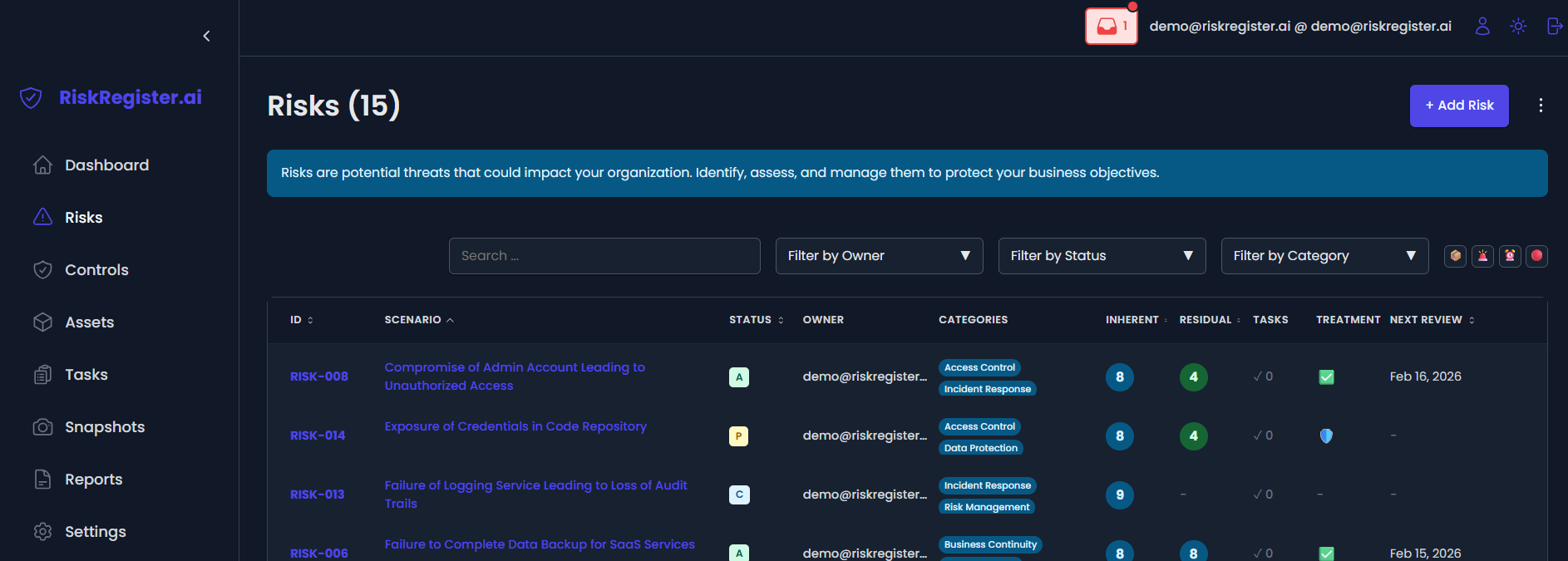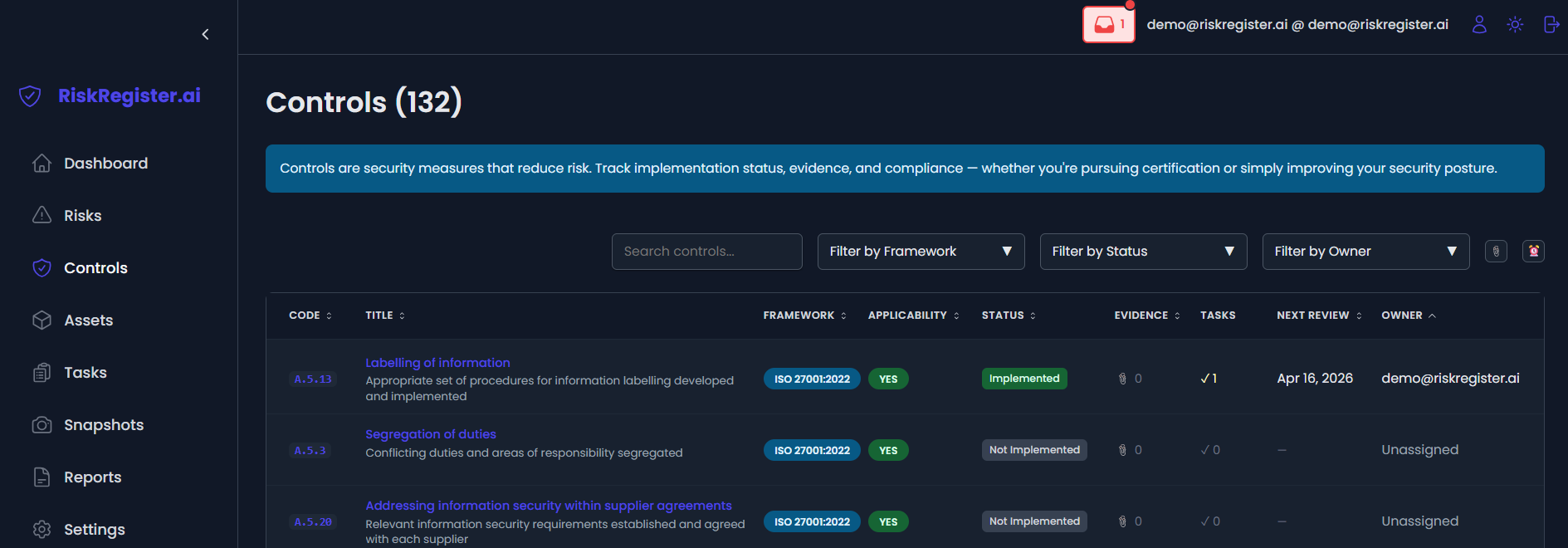AI-Powered Risk Register & Compliance Platform for SMEs
Manage risks, controls, and compliance in one platform. Support for ISO 27001, NIS2, and more. From €49/month.
✓ No credit card required




Manage risks, controls, and compliance in one platform. Support for ISO 27001, NIS2, and more. From €49/month.
✓ No credit card required




We help companies stay compliant without the pain of consultants, months of setup, or endless spreadsheets. At a fraction of the cost of traditional GRC tools.
Our AI-powered platform gives you the core of security compliance in one clean interface: Risk Register • Asset Inventory • Controls & Measures • Review Cycles • Evidence Tracking • Automatic SoA Generation
Import your current risks from Excel, start with our pre-built libraries, or let AI create risks and controls based on your organization profile.
Watch a complete walkthrough of RiskRegister.ai's key features
Trusted by leading organizations
Create, assess, and track risks with likelihood/impact scoring and automated workflows
Link security controls and assets to risks for comprehensive compliance tracking
AI-ranked measure library, intelligent risk suggestions, and automated Excel import with smart column mapping
Built-in support for ISO 27001, NIS2, CIS v8, and more compliance standards
Generate SOA reports and track risk effectiveness over time
Role-based access, task assignments, daily digest emails, and read-only auditor access
RiskRegister.ai reduced our ISO 27001 audit prep from 3 months to 2 weeks. The AI suggestions are incredibly accurate.
Finally, a GRC tool that doesn't require a PhD to use. We went from spreadsheet chaos to organized compliance in days.
The NIS2 compliance features saved us thousands in consultant fees. Everything we needed was already built-in.
Available in EU and US regions • No credit card required